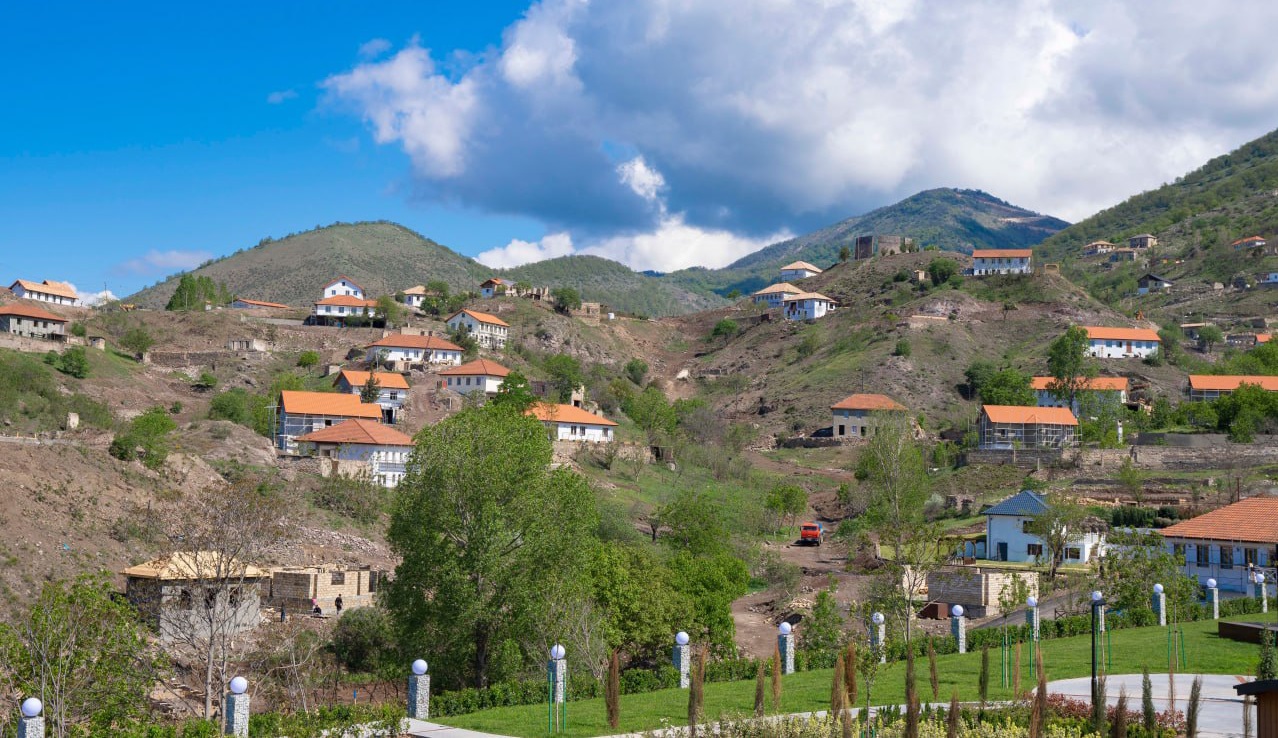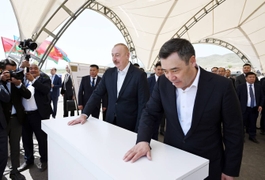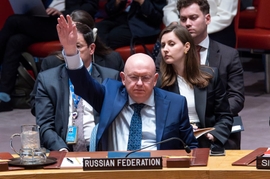The government of Azerbaijan is pressing ahead with the repopulation of the territories liberated from Armenian occupation in 2020.
On Thursday, the next group of former internally displaced persons (IDP) from the Zangilan district left for their permanent residences in the village of Aghali as part of the state-run Great Return Program.
Ninety-five individuals of 17 families – once settled in the 1st, 2nd, and 3rd Aghali villages, which were completely destroyed during the years of occupation – relocated to the reconstructed Aghali.
With their arrival, the overall number of the relocated people in Aghali reached 744. More residents are expected to return to the village once the construction of new residential quarters is complete.
On July 19, 2022, an inaugural group of 96 former IDP families returned to Aghali, the first settlement in the liberated lands designed as a “smart village” integrating advanced technologies and eco-friendly features. The village comprises 150 residential buildings, ranging from two to three stories, as well as a kindergarten, school, medical center, hydroelectric power plant, and other essential facilities.
The development of Aghali revolves around five key components: housing, production, social services, smart agriculture, and alternative energy.
Moreover, Aghali hosts several offices, including Azerpost, the ASAN Service multi-purpose social services center, the DOST social support center, and the Center for Development of Small and Medium Enterprises. Additionally, an agricultural park is currently under construction in the village.
As a result of the 44-day war with Armenia in 2020, Azerbaijan regained control of its territories. The Azerbaijani government approved the Great Return Program to facilitate the relocation of internally displaced persons to their native lands.
Since 2022, the former IDPs have been relocated from their temporary residences in various parts of Azerbaijan to the districts of Zangilan, Fuzuli, and Lachin, as well as the village of Talysh in the Tartar district. By the end of 2023, Lachin will be further repopulated and 2,000 people will be resettled in Fuzuli.
According to the government’s plans, a total of 2,000 families or 10,000 people are expected to return to their permanent residences by the end of 2023.
The completion of the first-stage of the Great Return Program by late 2026 will allow 34,500 families or 140,000 people back to the liberated territories in the Karabakh and East Zangezur regions, where 34,500 apartments and private houses will be built.
The 2023 state budget allocated AZN 5.26 billion, or $3.1 billion, for the ongoing and new reconstruction projects in the Karabakh and East Zangazur regions. However, President Ilham Aliyev confirmed that by the end of this year, the total investments will reach AZN 12 billion, or $7 billion.
In 2022, AZN 4.315 billion, or $2.5 billion, was invested in the revival of the liberated lands. In 2021, the total financial allocations for this purpose stood at AZN 2.178 billion ($1.28 billion).
Over the decades, Armenia and Azerbaijan had been locked in an armed conflict over the latter’s Karabakh (Garabagh) region. Following the Soviet Union’s dissolution in 1991, Armenia launched a military campaign against Azerbaijan. The war ended in a ceasefire in 1994 and saw Armenia forcibly occupying 20 percent of Azerbaijan’s internationally recognized territories. Over 30,000 Azerbaijanis were killed, 3,890 went missing, and one million were expelled from these lands in a brutal ethnic cleansing campaign carried out by Armenia.
On September 27, 2020, the Armenia-Azerbaijan conflict took a violent turn when Armenia’s forces deployed in occupied Azerbaijani lands shelled military positions and civilian settlements of Azerbaijan. During the 44 days of the war, the Azerbaijani forces liberated over 300 settlements, including the cities of Jabrayil, Fuzuli, Zangilan, Gubadli, and Shusha, from a nearly 30-year-long illegal Armenian occupation. The war ended with the signing of a tripartite statement by Armenia, Azerbaijan and Russia on November 10, 2020. Under the agreement, Armenia also returned the occupied Aghdam, Kalbajar, and Lachin districts to Azerbaijan.







 President Ilham Aliyev shed light on the evolving contours of the peace process with Armenia during an international conference in Baku this week. ...
President Ilham Aliyev shed light on the evolving contours of the peace process with Armenia during an international conference in Baku this week. ...
 Azerbaijan and Armenia started the process of demarcation of their border on Tuesday, with the installation of the first border markers based on ge...
Azerbaijan and Armenia started the process of demarcation of their border on Tuesday, with the installation of the first border markers based on ge...
 Iranian President Ebrahim Raisi expressed Tehran’s readiness to participate in significant development projects in Sri Lanka during the inauguratio...
Iranian President Ebrahim Raisi expressed Tehran’s readiness to participate in significant development projects in Sri Lanka during the inauguratio...
 As the conflict between Ukraine and Russia escalates, the strategic importance of Kharkiv, Ukraine's second-largest city, has come sharply into focus.
As the conflict between Ukraine and Russia escalates, the strategic importance of Kharkiv, Ukraine's second-largest city, has come sharply into focus.
 Iran and Pakistan have signed eight cooperation documents in various fields, and agreed to strengthen ties to fight terrorism in the region.
Iran and Pakistan have signed eight cooperation documents in various fields, and agreed to strengthen ties to fight terrorism in the region.



